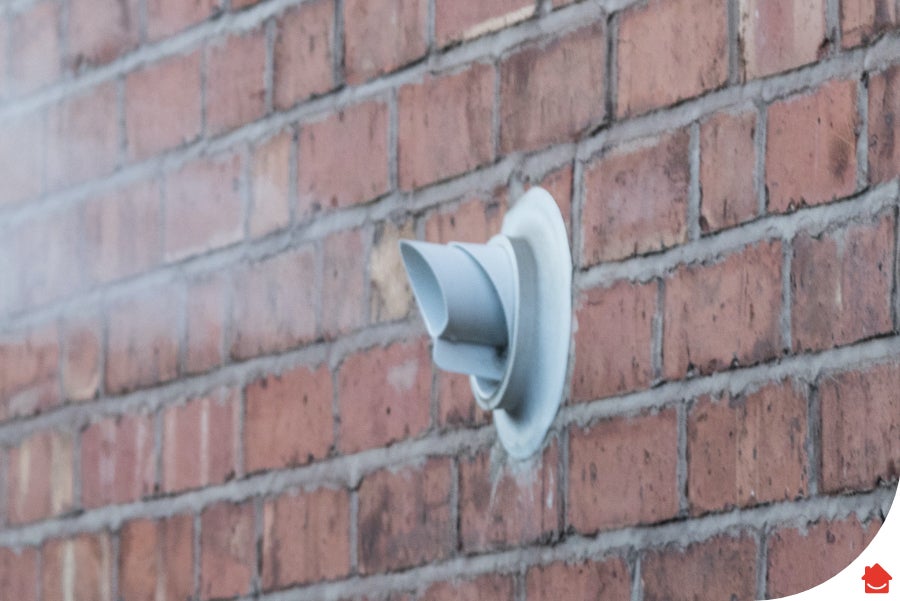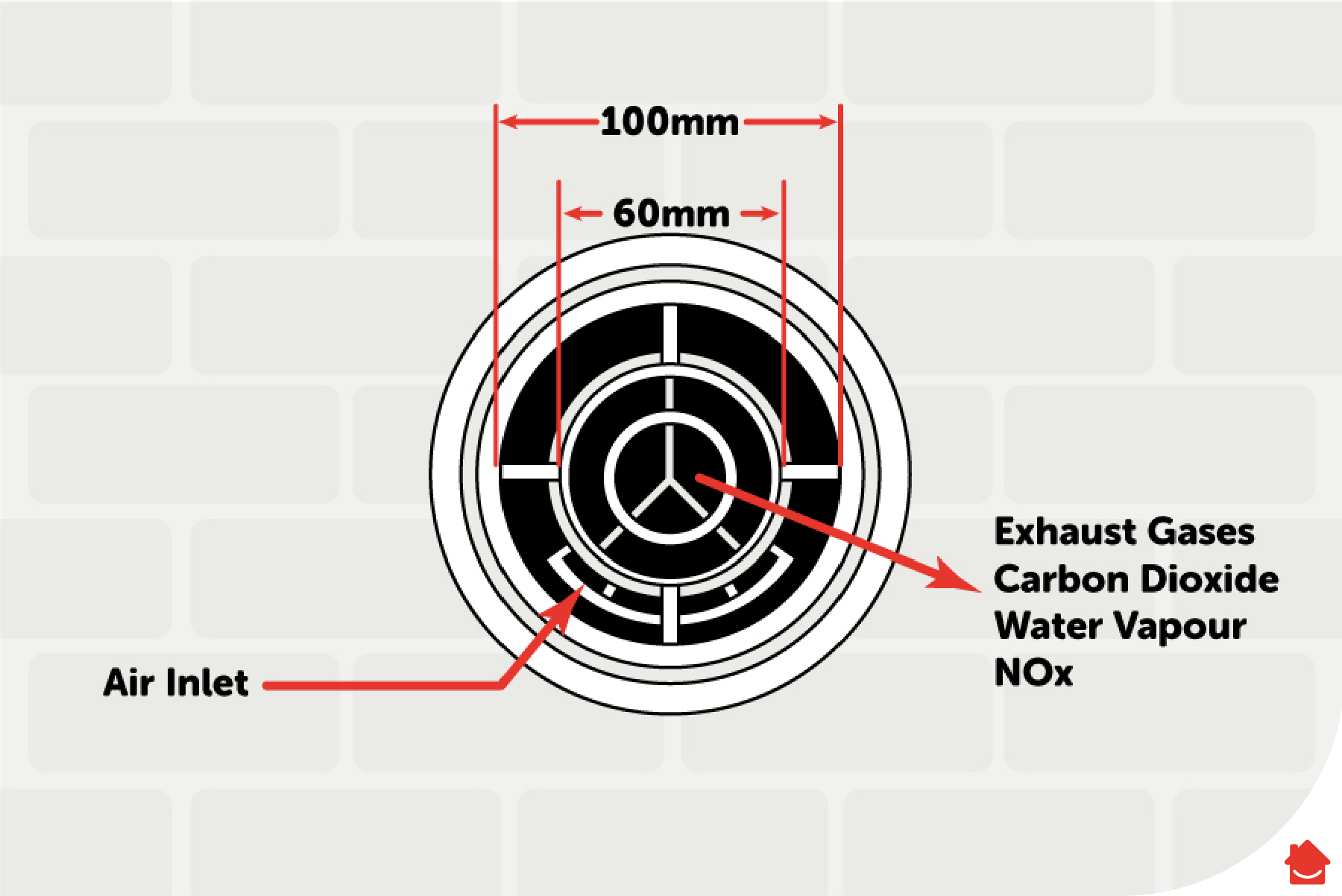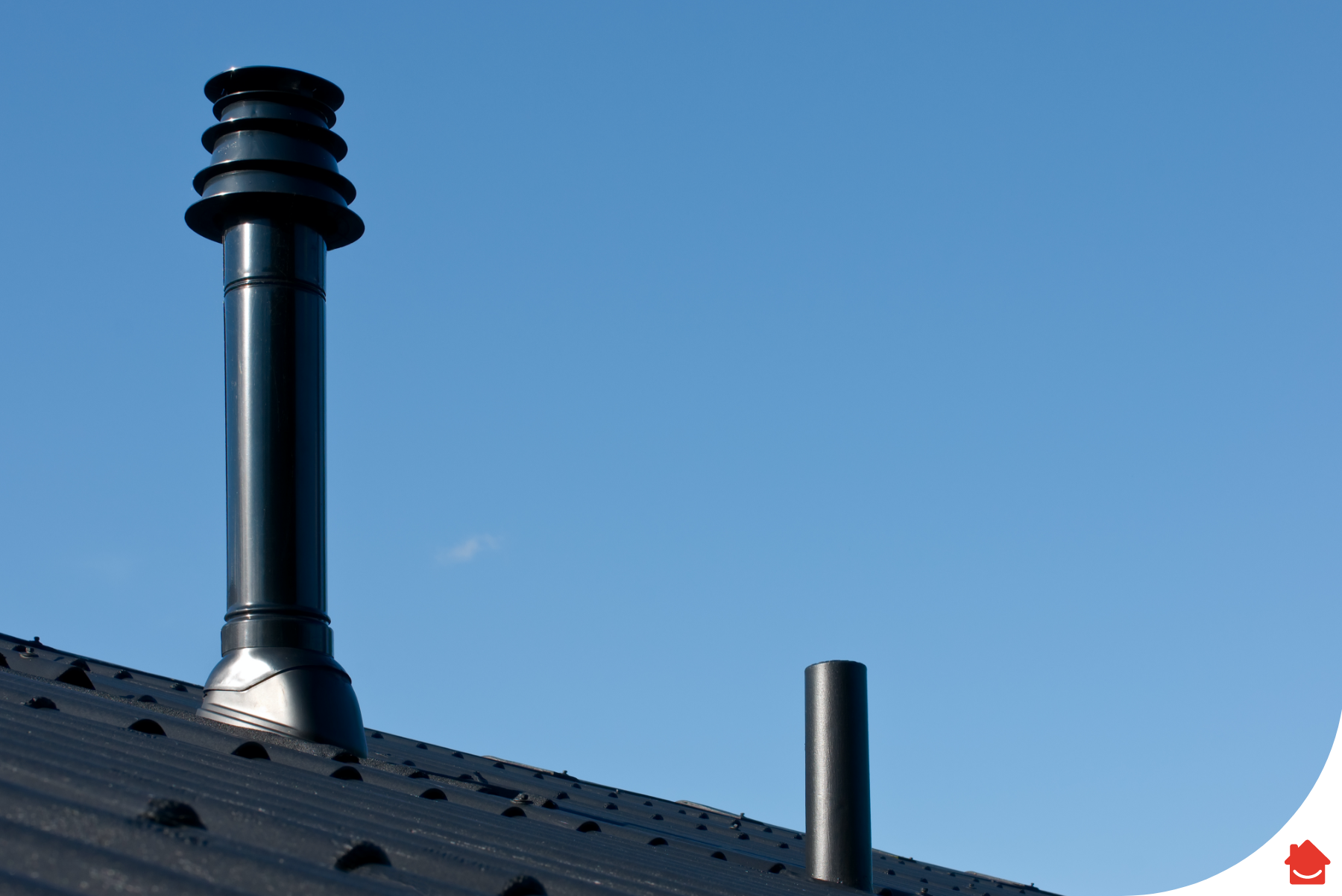Understanding your boiler
Boiler flue regulations
02 Sept 2021 • 6 minutes


Regulations around Boiler flues are safety measures designed to keep us safe from the harmful gases that are produced by our boilers as waste products. These will remain in place until someone invents a cleaner way to heat our homes.
Gas Safe Registered engineers are required to install boilers with the regulations around boiler flue separation distances top of mind – so it’s also a good idea for homeowners, renovators and landlords to know what regulations affect gas boiler flue, why they’re important, and how it impacts your property.
The combustion that goes on in a typical household gas central heating boiler produces harmful waste gases that need to be removed safely to the atmosphere – and from your house. The ‘flue’ is the pipe or duct that’s fitted to the boiler in order to transport these gases out of the boiler and far enough into the atmosphere to disperse safely.
It’s important that the flue is installed so that:
If we burn natural gas in a boiler we will always produce:
If your boiler isn’t working properly, deadly carbon monoxide may be produced too.
Even if you’re not sure what a boiler flue is, you’ve probably seen loads of them. Most properties in the UK have gas central heating boilers and any property that has a boiler must have a flue.

Typically, modern boilers’ flues are very short, horizontal pipes that stick out of an external wall. The size and shape of a flue prevent the waste gases from accumulating around the terminal and are expelled far enough into the atmosphere to prevent them from re-entering the home.
When we burn natural gas in a boiler we will always produce:
If your boiler isn’t working properly, deadly carbon monoxide may be produced too.
At one time you could put your boiler almost anywhere in your home, but these days the regulations are very strict on where you can and can’t position your boiler and flue. The regulations around boiler flue position are necessarily strict to prevent deaths, and any party who fails to adhere to them can face serious consequences.
Please note that the following are the separation distances for fan-assisted room-sealed appliances. Natural draught-balanced flues and open flues have different required dimensions.
The positioning of the flue needs to be (a minimum of):
The manufacturer’s instructions must be left at the property where the boiler is installed to allow future reference and guidance.
A boiler flue shouldn’t be close to any opening that could potentially allow the flue gases back into the home, such as windows or doors. The manufacturer’s instruction will provide specific guidance around distances to openable windows, doors etc.
Your boiler burns fuel in order to create heat, so the gases coming out of the flue can be extremely hot. The regulations state that the flue shouldn’t be located nearby any item that hot gases could damage. For example, if you’ve got plastic guttering, those hot gases could melt it if it’s positioned too close.
If your property wall backs onto a public space like a pavement, it’s crucial that the flue’s gases don’t endanger people who are walking by. Boiler flues must therefore be placed at least 2.1 m off the ground.
Horizontal flues are most commonly used, in situations where the terminal is within 2 metres of an opening into a neighbours' property a vertical chimney system is used.

If your boiler isn’t burning gas properly, carbon monoxide can be produced alongside the carbon dioxide and water vapour.
If your flue pipe is not complete or incorrectly located, these gases find their way back inside your home, which could cause a dangerous situation to develop.
If you’re a homeowner, tenant or landlord with an open-flued appliance, it’s wise to keep a watchful eye and make sure it hasn’t become blocked.
A telltale signal that something could be wrong would be black or dark grey marks around the appliance which could indicate spillage of products of combustion. In some extreme conditions, you might see leaves, conkers, twigs, pinecones, general debris, bits of birds’ nests or even dead birds in there.
It is always worth getting your flue checked at least annually and keeping it clear of any debris, and you won’t need to worry.
If you think that your flue is blocked, stop using the appliance immediately and do not operate it again until it has been checked for safety by a Gas Safe Registered engineer.
If you’re worried about your boiler or boiler flue, our Gas Safe registered engineers are fully qualified to handle jobs such as flue positioning on a variety of boiler types, brands and models. Get in touch and we’ll be happy to help.
Our help & advice articles cover Plumbing, Home heating, Electrical, Energy-saving and Home maintenance.